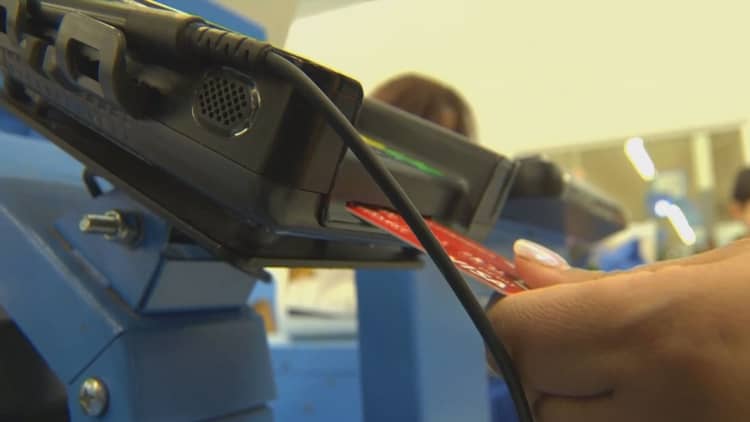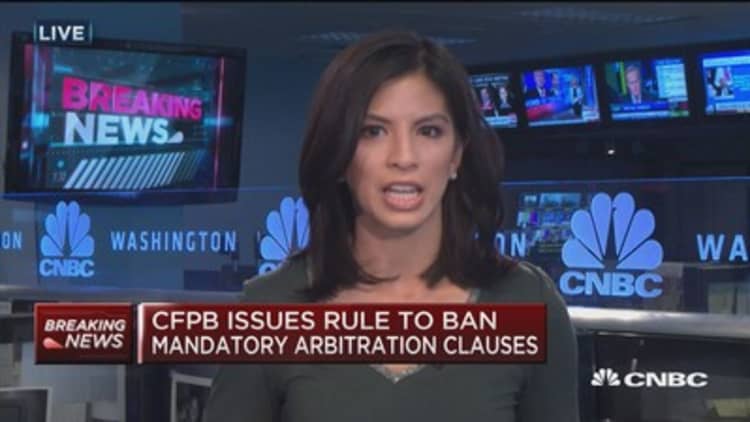
Most Americans would rather not shell out extra cash to their bank in overdraft fees. Sadly, many still do.
Altogether, Americans paid $15 billion in fees for bounced checks and other overdrafts last year, the Consumer Financial Protection Bureau has said.
Almost half of Americans who've had a checking account have been charged an overdraft fee at some point. In fact, the average consumer overdrafts more than twice a year and coughs up $35 in fees each time, according to a study released Tuesday by personal finance website NerdWallet.
Those who overdraw frequently waste much more, to the tune of $442 a year, according to NerdWallet's analysis of CFPB data. (For some banks, overdraft revenues are a significant part of their income, despite the Federal Reserve's 2010 regulations that sought to bar them from assessing these fees unless customers have opted into an overdraft protection program.)
Overdraft coverage, which means banks may charge you a fee when transactions including debit card purchases cause your account to drop below zero, sounds like a good deal, but it's usually better to steer clear, according to Kimberly Palmer, NerdWallet's credit cards and banking expert. "It's really something to think twice about because overdraft fees can add up really quickly.
"A lot of people don't even know that overdraft fees are optional," she said.

And in most cases, they are also entirely avoidable. Here's how to get around them:
Opt out of overdraft coverage or look for a bank with free overdraft transfers. If you want all your transactions to go through no matter your balance, choose a bank that offers free overdraft transfers between your checking and savings account. Some banks will also allow you to finance overdrafts, so you only pay interest on the amount you're overdrawn.
Choose a bank with low or no overdraft fees. Some banks forgo overdraft fees altogether and will decline transactions if you don't have enough money in your account. Otherwise, some institutions, particularly online-only banks and credit unions, charge as little as $9 for an overdraft.
Set up text or email alerts for low balances. Many banks can alert you when your account balance goes under a certain amount. You can sign up for alerts on your bank's website so that you'll get an email or text when your balance gets too low.


